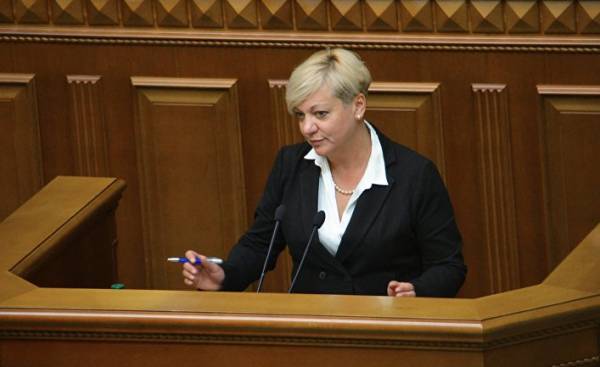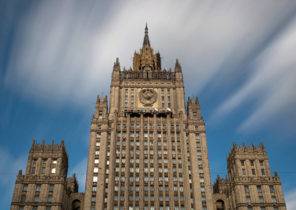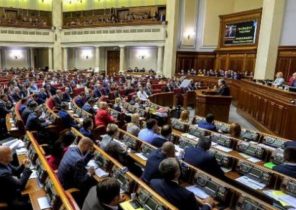
The international monetary Fund announced this month that it approved the fourth tranche of the financing package Ukraine totaling 17.5 billion dollars. This decision will have positive consequences for the people of Ukraine for many years to come. It points to the success of the current program of cooperation between Ukraine and the IMF.
Ukraine’s economy is declining, because of which the country’s GDP in the first quarter of 2015 decreased by 17.6% compared with the corresponding period of the previous year. The Russian annexation of Crimea and the escalation of the military conflict in the Donbas has exacerbated our problems.
Our financial system also suffered from the old oligarchical order, where a tiny minority of super-rich people profited at the expense of all other segments of the community. Appeal to the international community and obtaining funding from the IMF was extremely important step in the implementation of structural reforms. This will help to give a strong impetus to the economic growth of Ukraine.
One of the conditions of IMF financing was to conduct a fundamental reform of the banking system in Ukraine. These reforms are often unpopular, but essential to maintain and support stable and transparent banks in our country.
We faced a very difficult task. To restore order in the Ukrainian banking system, it was necessary to identify and close many zombie banks. These institutions do not comply with international banking standards, and in fact was the private banks of the oligarchs. Many were involved in criminal activities. Some simply were instruments of financing of joint-stock companies. Others steal the savings of customers.
The national Bank of Ukraine initiated a rigorous stress tests revealed a hidden system of related-party lending and assessed the asset quality of leading banks throughout the country. Abuse and bad practice in some cases, simply stagger the imagination. Fake correspondent accounts, opening of accounts in fictitious passports, a huge mismatch in the balance sheets, lime financial services, money laundering — we saw it all. Many banks were opaque ownership structure, which aggravated the situation.
Those banks that were not involved in money laundering and fraudulent schemes, received a maximum of possibilities for reform. We gave them three years to improve capital adequacy ratios. Where was seen the violations and abuses that have not been fixed, we have taken decisive action.
In December, the national Bank of Ukraine and the Ministry of Finance conducted the nationalization of “PrivatBank”, which was the largest private Bank in Ukraine. It was extremely important to the Bank, where he kept approximately 34% of all deposits of the Ukrainian population and was carried out 60% of all retail transactions. But the Bank has not passed a series of stress tests, and its owners are unable to recapitalize. In the end, we were forced to intervene to protect depositors and to fulfill the conditions for further funding from the IMF. Our investigators found that “Privat” is insolvent, and so we took it under state control.
Further inspection showed that the lack of capital allowance “PrivatBank” is 5.6 billion dollars. 97% of the loans of “PrivatBank” for legal entities (staggering!) went into accounts of the companies associated with two of its major shareholders. We used a complex fraudulent scheme. Now that “Privat” is in the hands of the state, deposits of 20 million Ukrainians, including pensioners, students and low-income families are protected.
In addition, the NBU has closed 88 of 180 existing banks in the country. The era of zombie banks is in Ukraine came to an end.
To ensure financial stability, we have introduced more strict rules and regulations for banks. It refers to the capital adequacy ratio, to laws restricting lending to related parties and non-performing companies and to revaluation of financial support and to conceal other shortcomings.
To implement best practices and gain long-term confidence of our foreign creditors such as the world Bank, the European Bank for reconstruction and development and the IMF, it is necessary not just to help the internal pressure, and to meet international standards.
In the long term, the NBU should strengthen its capacity to work at the level of their European partners. This, as well as further implementation of reforms will help us to enlist much-needed international support.
Also need new legislative measures to bring the provisions of the banking regulation and supervision in line with European and international standards. It is also necessary to make serious reforms in non-Bank financial institutions.
In short, this is just the beginning of a long journey. But our banking reforms today are a solid basis for development and investments that will help us to begin economic recovery and build a better future for Ukraine and its people.
Valeria Gontareva head of the National Bank of Ukraine.







